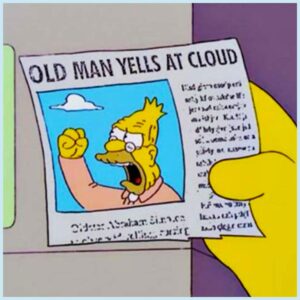Let’s get critical, critical!
I remember the first time I was able to vote was in the 2015 National election. I had never paid much attention to the news. I didn’t care to seek out information about the parties, but I knew it was my duty as a Canadian citizen to cast a vote. So I took the shortcut route. I Googled something along the lines of “Which party should I vote for in the Canadian election?” where I quickly found a quiz asking if you agreed or disagreed with various political statements. Here I was thinking what a terrific way this was for me to learn who I agree with most, without having to do a deep dive into a topic I wasn’t interested in researching. I spent a fair amount of time on the quiz and in the end was shown a detailed order of the parties I agreed with the most. Later that night I told my parents about my strategy to learn about politics only for them to quickly shatter my new found strategy with one possibility I hadn’t considered. They said:
“You have to be careful because you don’t know who designed that quiz and whether they skewed the data to align with the party they support”
Now were they right? Was the information I had just learned unreliable? I don’t know. Like I said I wasn’t interested in the topic, I was interested in an answer. I made no attempt to check if the source was reliable. I barely read any of the information provided at the end of the quiz. I just went in looking for an answer, and once I had that answer I told myself it was a job well done and it could now be out of sight, out of mind.

Suffice to say I was back to square one. Now while that quiz may or may not have helped me learn about where I stand politically, what it did do was help me learn that I needed to be more critical of what I come across online. I wasn’t new to the internet, I had seen my fair share of misinformation being spread, and yet in this scenario I wasn’t being precocious at all. I think since I wasn’t enthusiastic about the topic I had just gotten a little lazy. Haven’t we all? In a world where misinformation is much easier to spread than it was a couple decades ago, I think we can all agree that occasionally we don’t always investigate a source as well as we should.
When the generations before us would read the newspaper or turn on the tv there was no fact checking to be done. They took it on face value that the information they were being provided was accurate. Now it’s no longer that easy. It’s necessary to always be thinking critically about the information we receive. In the Ted Talk Kelsey shared, Assiata Ayinla says that “Everything we hear, everything we read, and everything we see should be questioned”. While this may be necessary, it’s also much easier said than done. Sometimes I just want to read something and believe it, but it’s important to remember that our actions serve as a guide for the generations to come. If we give up on thinking critically then so will they, and what kind of world does that lead to? One where misinformation runs rampant.

So how do we stay in the mindset of a critical thinker. One way is to utilize the CRAAP test. I hadn’t heard of the CRAAP test until Kathleen had mentioned it, but I wish I had been taught it in school. There are many aspects that go into validating the information found in a reading or video. Using an easy to remember mnemonic device will allow students (and who are we kidding, adults too) to always be equipped with the tools needed to verify their findings. In our discussion the other night we were asked to discuss which aspects we excel in, and which we can improve upon. Having had more time to reflect I think I’d like to change one of my answers. The aspect I need to improve upon most is Purpose. I guess that hasn’t really changed since 2015. On topics I already have an opinion about I tend to question information when it disagrees with my beliefs and am more trusting to those siding with me. I wouldn’t say this is the case all the time, but I know it happens. While this leads to a comfortable lifestyle, I also don’t want to become a crotchety old man who’s unwilling to consider different viewpoints. As such, I believe I should attempt to approach information I agree with with the same level of hesitancy that I approach information I disagree with. This means trying to decipher if the information is impartial or biased in anyway, figuring out if the source is trustworthy, or if the information is being provided with a hidden agenda.
While it would be nice to go back to the times of taking everything at face value it’s just not the world we live in anymore. Critical thinking is vital to avoid becoming an echo chamber of misinformation. In order to instill that value into our students, we must first be willingly to embrace that mindset ourselves.
Let’s get cynical, cynical…I find myself on the path that I hoped to never find myself on, the cynical one. I think critical thinking is one of the most important skills and is a skill that is undervalued in our society.
When I read the quote you had from your parents, I imagined it from different perspectives. Young adult me scoffed. Current me said that is wise. Dark future me said you can’t trust anyone. I am finding myself struggling with being critical but not cynical.